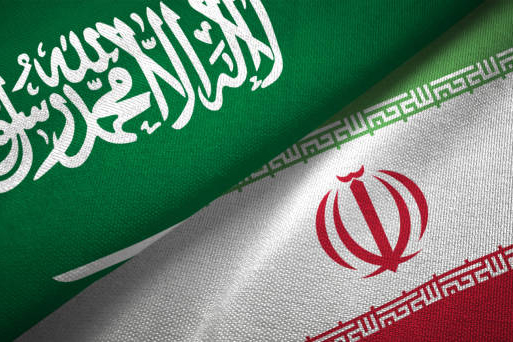( Middle East Monitor ) – The agreement signed between Saudi Arabia and Iran under Chinese auspices on 6 March aroused much interest in the Arab world, the Middle East and the world in general. It came after a diplomatic break between the two countries in 2016, with a statement that confirmed: “It is a response to the Chinese president’s initiative to support relations between Iran and Saudi Arabia.” Despite the agreement to reopen the two embassies with diplomatic representation within two months, the Saudi foreign minister stated that the agreement does not necessarily mean solving all the problems between the two countries. This was followed by the statement of the Saudi Minister of Finance Mohammed Al-Jadaan that Saudi investments in Iran could happen very quickly without hindrance as long as the terms of the agreement are respected.
Despite the importance of this agreement, the most prominent feature is Chinese sponsorship because it reflects the increasing Chinese strategic influence globally and the escalation of China’s practical interest in the Middle East. Undoubtedly, it is not an isolated step from the context of the development of Chinese foreign relations. It came after the 20th general conference of the Chinese Communist Party, followed by three Chinese summits held in Saudi Arabia – the first of their kind attended by the Chinese president. President Xi Jinping described it as opening a “new era” for relations between China, the Arab world, the Gulf States and Saudi Arabia, during which major memorandums of understanding and agreements were signed between China and the Arab countries. These steps indicate China’s view of the region and where Chinese ambitions could potentially reach.
The rapprochement step comes from the escalation of the Chinese role and the transformation of Beijing’s foreign policy from a shy policy that usually stands in the shadow of Russian policy, to an initiative policy that prioritises the Middle East and the Gulf. Given the great importance the region represents to China, especially in the energy file and the Belt and Road Initiative, the Chinese foreign minister commented, describing the agreement as: “A victory for dialogue, a victory for peace and providing important good news at a time when the world is in turmoil.” This was an indirect reference to the Russian-Ukrainian war and the possibility that China could play a conciliatory role amid the West’s accusations of China’s siding with Russia.
Via Pixabay.
All these tensions and accusations indicate that there is a clear and massive targeting of China, and it is interested in working on rapid development, whether militarily, economically or at the level of relations, because it realises that confrontation is inevitable with the “West”. However, it tries to avoid any direct clashes with the US and the West, or at least postpone them for as long as possible until its readiness.
Saudi Arabia taking this step of reconciliation with Iran means that Israel’s strategy towards Iran in the region has become highly questionable because the Iranian-Saudi rapprochement represents a setback for Israeli foreign policy, which over the past years was based on isolating Tehran, inciting war with it and depicting that the region is united against Iran and ready for a military confrontation with it. It will also most likely negatively affect the normalisation process led by the US because the Saudi-Iranian agreement could lead to appeasement in the hot files in the region, such as the Yemeni, Lebanese, Syrian and even Iraqi files. Then the Gulf States’ need for the US security umbrella will decline, which means a decline in the US role in the region. Thus, a retreat for Israel, with what it represents as a semi-compulsory entrance to the US, rather, normalisation may become a heavy burden on its owners without much benefit and will no longer be required.
It seems that the official Israeli side, led by Israeli Prime Minister Benjamin Netanyahu, is still in a state of denial. Netanyahu made statements from the Italian capital, Rome, after the official announcement of the Saudi-Iranian agreement, about his intention to continue his efforts to normalise relations between Tel Aviv and Riyadh by creating the Hijaz railway and linking Haifa and Saudi Arabia with the train project across Jordan. On the unofficial level, especially in the opposition, the Israeli concern about the agreement was evident, and the matter reached the point of describing it as a dangerous development for Israel and a political victory for Iran, according to former Israeli Prime Minister Naftali Bennett.
Once again, the Saudi-Iranian agreement may be exposed to immediate setbacks. Still, on the strategic level, it is an indication of the escalation of China’s influence in the world and its expansion in establishing its relations with countries at the expense of the influence of the US. This is especially true in the Middle East, as the agreement reflects Beijing’s desire to take a greater role in the region. We may soon see its involvement in the Palestinian issue and the rest of the major regional issues.
The views expressed in this article belong to the author and do not necessarily reflect the editorial policy of Middle East Monitor or Informed Comment.
 This work by Middle East Monitor is licensed under a Creative Commons Attribution-NonCommercial-ShareAlike 4.0 International License.
This work by Middle East Monitor is licensed under a Creative Commons Attribution-NonCommercial-ShareAlike 4.0 International License.



 © 2025 All Rights Reserved
© 2025 All Rights Reserved